Connor Chen
Prompt-to-Leaderboard
Feb 20, 2025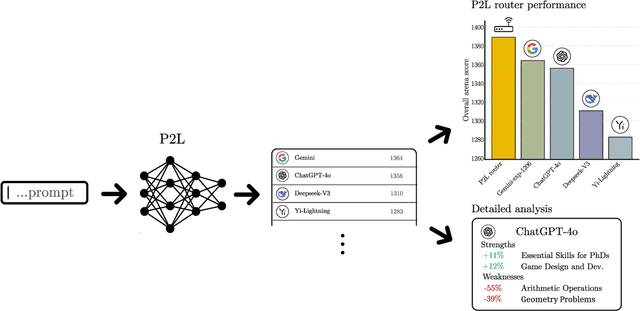
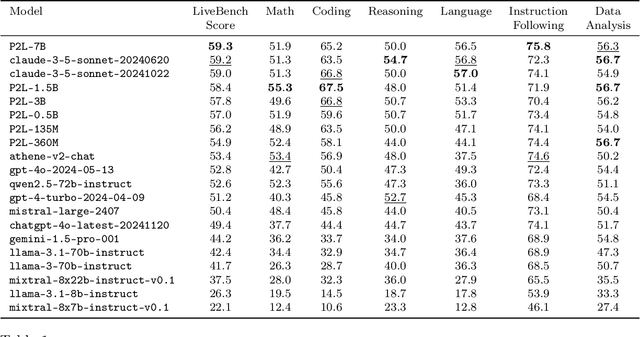
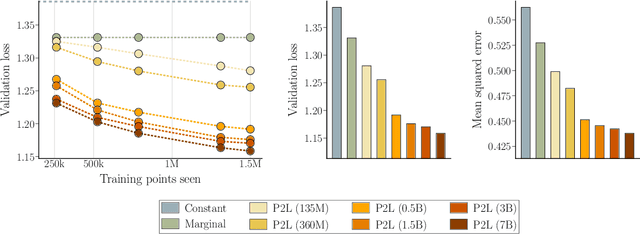
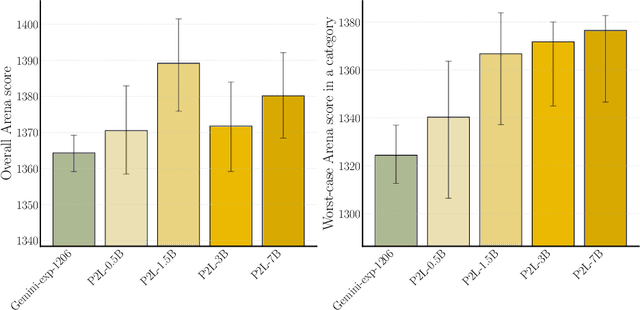
Abstract:Large language model (LLM) evaluations typically rely on aggregated metrics like accuracy or human preference, averaging across users and prompts. This averaging obscures user- and prompt-specific variations in model performance. To address this, we propose Prompt-to-Leaderboard (P2L), a method that produces leaderboards specific to a prompt. The core idea is to train an LLM taking natural language prompts as input to output a vector of Bradley-Terry coefficients which are then used to predict the human preference vote. The resulting prompt-dependent leaderboards allow for unsupervised task-specific evaluation, optimal routing of queries to models, personalization, and automated evaluation of model strengths and weaknesses. Data from Chatbot Arena suggest that P2L better captures the nuanced landscape of language model performance than the averaged leaderboard. Furthermore, our findings suggest that P2L's ability to produce prompt-specific evaluations follows a power law scaling similar to that observed in LLMs themselves. In January 2025, the router we trained based on this methodology achieved the \#1 spot in the Chatbot Arena leaderboard. Our code is available at this GitHub link: https://github.com/lmarena/p2l.
How to Evaluate Reward Models for RLHF
Oct 18, 2024

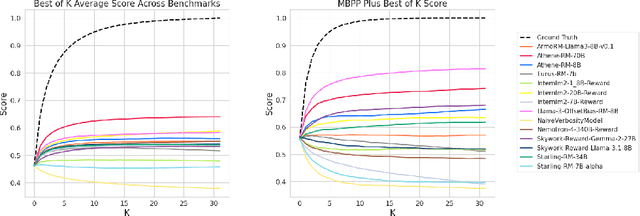
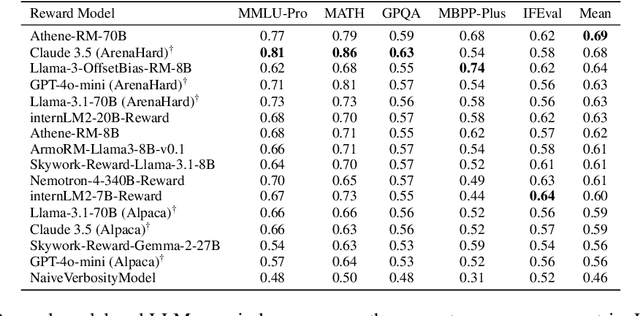
Abstract:We introduce a new benchmark for reward models that quantifies their ability to produce strong language models through RLHF (Reinforcement Learning from Human Feedback). The gold-standard approach is to run a full RLHF training pipeline and directly probe downstream LLM performance. However, this process is prohibitively expensive. To address this, we build a predictive model of downstream LLM performance by evaluating the reward model on proxy tasks. These proxy tasks consist of a large-scale human preference and a verifiable correctness preference dataset, in which we measure 12 metrics across 12 domains. To investigate which reward model metrics are most correlated to gold-standard RLHF outcomes, we launch an end-to-end RLHF experiment on a large-scale crowdsourced human preference platform to view real reward model downstream performance as ground truth. Ultimately, we compile our data and findings into Preference Proxy Evaluations (PPE), the first reward model benchmark explicitly linked to post-RLHF real-world human preference performance, which we open-source for public use and further development. Our code and evaluations can be found at https://github.com/lmarena/PPE .
 Add to Chrome
Add to Chrome Add to Firefox
Add to Firefox Add to Edge
Add to Edge